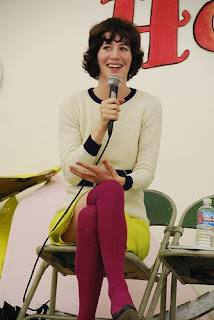
Once, at a restaurant, I ordered “Crispy potato wedges with sweet and sour dipping sauce” as an appetizer. What I got was French fries and ketchup. The description on the menu was true, but not honest. I didn’t feel like I could complain to the manager, but it left me feeling disappointed and vaguely deceived.
Too much of our communication about international development is true but not honest. We boil complicated situations down into simple ideas. We pretend there are easy answers to problems so difficult there may be no answers at all. We use emotional impact and compelling photographs to avoid detailed discussion of the challenges of doing good development work.
And we need our stories, because our stories are what bring us funding. Whether it’s a government agency, a foundation, a corporate partner, or a little old lady putting a five dollar bill in an envelope, the people who give us money respond to stories. The government calls it reporting, corporations ask for success stories, and regular people just want reasons to give their cash, but they are all asking for stories to explain what we do and why we deserve their money to do it.
For a long time, were stuck with our oversimplified, easily digested stories. Our true-but-not-real stories were all we could get out to the world. Three minute spots on the evening news and press releases don’t leave much room for nuance. Even reporters from respected media outlets rarely have the time or expertise to research and relay a complicated article about the realities of international development.
The world has changed. We have now have a huge selection of social media tools we can use to shape our own messages and communicate directly. And – we can do more than just put a message out there in an electronic bottle and hope someone finds it. We can have conversations about what we do, how we do it, and how people can be part of that. We don’t have to spoon feed people easy ideas because we’ve got the time and space to talk about the hard stuff.
This is my challenge to you:
Think seriously about what social media can do for you. Don’t just use your Twitter account for mini-press releases; use it for genuinely new information as it happens. Imagine a country director in Darfur tweeting as he travels to a refugee camp. Imagine a collaborative blog by your HQ staff, talking about what backstopping actually entails. (People would be a lot more likely to pay overhead if they knew what overhead was.) Imagine your Sri Lanka country team posting their photos to Flickr and their videos to YouTube. Imagine your website as a portal to all of that, a place people go to get deep knowledge about what your organization does. Imagine turning all your donors into passionate advocates who encourage others to give too.
Better stories can do that for us, and we finally have a way to tell them.
Photo Credit: Miranda July at Modern Times, taken by Steve Rhodes.

Couldn’t agree with you more!!
Thanks. That’s always a pleasure to hear.
On a related note, check out this post on the Donor Power Blog:
http://www.donorpowerblog.com/donor_power_blog/2008/07/the-two-element.html
Thanks for the link!